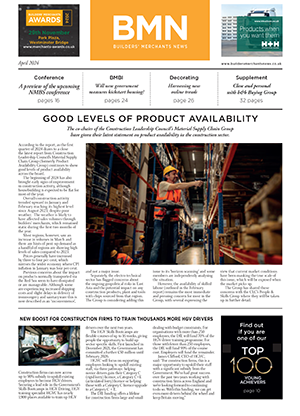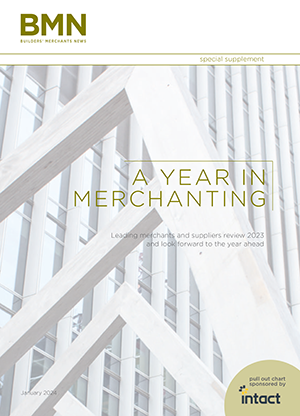This year legislation in the timber industry has wielded more than a passing pressure on suppliers and merchants alike. On 3 March 2013 we had the EU Timber Regulation (EUTR), followed by the Construction Products Regulation (CPR) with its pertaining CE marking and obligatory Declaration of Performance certificates to contend with later in the summer.
Indeed, some are still working hard to understand their obligations, deal with the maelstrom of paperwork and comply. It’s true that the whole industry needs to continue to pull together to ensure ongoing and successful compliance with the legal and responsible sale and procurement of wood products.
Although the obligations lie with the operators to adopt a due diligence system that will effectively minimise the risk of illegal timber being imported, traders further down the supply chain - including both merchant branches and even their customers - must ensure they have systems in place to be able to trace timber purchases to sales.
Such systems will allow enforcement agencies to establish the source of entry into the EU for any illegal timber identified down the supply chain and therefore instigate any criminal proceedings against the operator or trader involved. Every trader in the supply chain is therefore required to keep records of their suppliers for five years.
Products also need to carry the CE mark: the only way to demonstrate that a product complies with the CPR. The CE mark in this way is the manufacturer’s declaration that the product meets the minimum requirements of a harmonised technical specification, enabling them and their agents to place the product on the market. The associated Declaration of Performance (DoP) certificate then needs to be available – at Medite and SmartPly we worked hard in the run up to the 1 July 2013 to develop DoPs for all our products, which are now available to download as necessary.
Seizure of goods and even a suspension of the authorisation to trade are some of the penalties that could be leveraged for failure to comply with the latest laws governing the buying and selling of timber and wood based products. However, while these may be difficult to enforce, both merchants and suppliers need to think about the reputational impact and possible penalties both financial and custodial, should they be found to be dealing in illegally harvested timber products.
These two pieces of legislation are already working well to uphold standards and improve the marketability of sound, responsibly sourced and properly documented products. Buying and selling certified wood products is the first step to compliance. However, only by working with suppliers very closely can merchants ensure the raft of paperwork and administrative processes required are robust and sustainable enough to stand the test of time when it comes to EUTR and CPR compliance.
George Watson is product manager for Medite MDF and SmartPly OSB.







